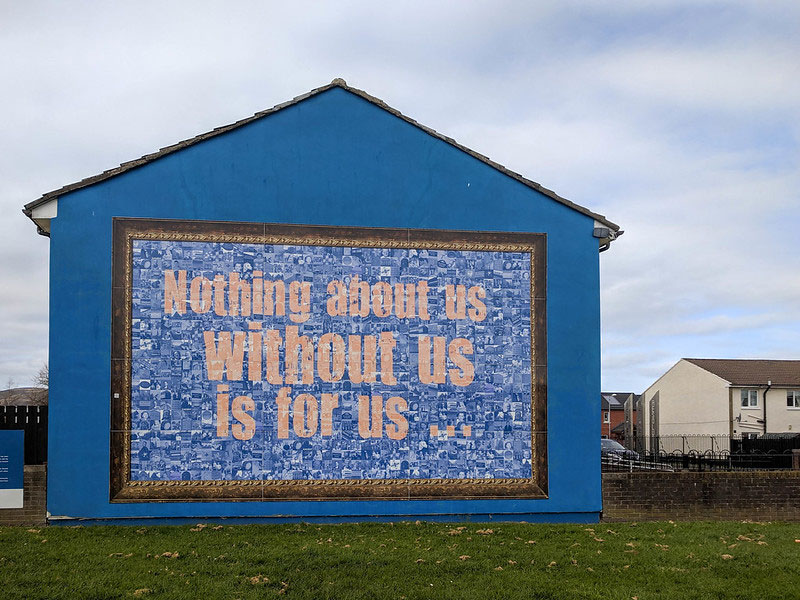The “USA PATRIOT Act” (Uniting and Strengthening America Act by Providing Appropriate Tools Required to Intercept and Obstruct Terrorism) could pose big problems for nonprofits, especially those that advocate changes in U.S. foreign policy or provide social services to individuals that become targets of government investigations.1 The attacks of September 11 were crimes before the USA PATRIOT Act was proposed. This law, which passed during the last week of October 2001, rushed through Congress in a closed process that took place while Congressional offices were shut down for anthrax testing. It was so rushed that a final copy of the bill was not available for public review at the time the vote was taken. The USA PATRIOT Act greatly expands search and surveillance powers that can be invoked under a lowered threshold, requiring only that investigators assert that information sought is relevant to a foreign intelligence investigation.
This and other provisions of the USA PATRIOT Act, combined with recent government actions against foreign nonprofits and our history of using such laws to suppress dissent (see History of Abuses box), raise a real possibility that some nonprofits, their employees and members could be subjected to extensive surveillance, criminal charges or have their assets frozen or seized.2
The organization and its members or employees could be charged with “domestic terrorism,” a criminal activity. “Domestic terrorism” is defined as criminal activities under state or federal law occurring within the United States that are dangerous to human life and appear to be intended to intimidate civilians, influence the policy of a government by intimidation or coercion, or affect government operations by means of mass destruction, assassination, or kidnapping.
Broadly interpreted this definition could be applied to acts of political protest by any group whose tactics involve minor violations of law, such as engaging in civil disobedience. Examples of nonprofit activity that could become “domestic terrorism” include an anti-abortion group planning to heckle women entering a clinic, an environmental group doing research on the dangers of nuclear power plants, a peace organization collecting funds for Palestinian refugees, or members of a labor union blocking access to a factory so that scabs cannot cross the picket line.
If the government can show that it is more likely than not an organization is connected to the planning or carrying out of an act of domestic or international terrorism, the funds and assets of the organization could be frozen or seized before any criminal charges are filed.
The organization could be declared a “terrorist organization” because of non-criminal activity. The attorney general or secretary of state can designate a group as a terrorist organization if they believe the group commits or incites a terrorist activity under circumstances indicating an intent to cause death or serious bodily injury; prepares or plans a terrorist activity; gathers information on potential terrorist targets; or solicits funds for any of the above. No specific criteria are listed for what constitutes a “terrorist activity.” There are no procedural safeguards to protect against a wrongful designation.
If your organization provides social services to low-income households with a member designated as a “terrorist”, you could be charged with providing material support to terrorists. If the government has designated someone as a terrorist, an organization that provides any kind of assistance to that person could be charged. Material assistance includes providing “terrorists” with cash assistance, lodging, training, expert advice, safehouses, false documentation or identification, communications equipment, facilities, weapons, lethal substances, explosives, personnel, transportation, and other physical assets, except medicine or religious materials.
Services that could be impacted if clients are designated as terrorists include legal advice to an immigrant seeking permanent resident status, job training, rental or energy assistance, and homeless shelters. The charges of harboring and providing material support to terrorists carry a sentence of up to 10 years in prison.
“Sneak and Peek,” Secret Searches, and “Scattershot Intelligence”
The Fourth Amendment’s protection against unreasonable searches and seizures has traditionally required the government to get a warrant and notify a property owner prior to conducting the search. This makes it possible for a person to challenge the validity of the warrant. But two provisions in the USA PATRIOT Act could allow a nonprofit’s offices to be subject to search and seizure without prior notice.
Under the “sneak and peek” provision, the government could enter an office at any time without giving prior notice if the judge issuing the warrant finds reasonable cause to believe that waiting to notify the organization may have an adverse result. This allows entry when no one is there. Notice must be given after the fact in a reasonable period of time, unless good cause is shown. The search must relate to a criminal investigation, but the organization does not have to be the direct target.
No probable cause that a crime has been committed is required for the offices of a nonprofit to be searched without any notice if a “significant purpose” of the search is to gather information relating to an intelligence investigation. This also applies to wiretaps. Judges do not have authority to deny applications for warrants. In this type of search no notice is given to the organization before or after, effectively creating a secret search.
The government could also search or seize nonprofits’ organizational records, computers, or assets for non-criminal activity, if it is for intelligence investigation purposes. Although the investigation cannot be “conducted solely upon the basis of activities protected by the first amendment to the Constitution,” free speech activities can be the primary factor, as long as some other reason is cited. The records searched or seized could include confidential information, such as personnel files, financial transactions, medical data and client files, as well as confidential student records.
A nonprofit’s phones could be tapped or its computer use and e-mails monitored, as well, without notification. Any phone or computer used by someone deemed to have relevant information can be tapped, including their place of employment or homes they visit. The subject does not need to be suspected of a crime to be wiretapped. Previously this authority was only available if the government could show the target’s changes in phones had the effect of thwarting the wiretap. The ACLU has called this authority “scattershot intelligence wiretaps.”
Sign up for our free newsletters
Subscribe to NPQ's newsletters to have our top stories delivered directly to your inbox.
By signing up, you agree to our privacy policy and terms of use, and to receive messages from NPQ and our partners.
Information about use of the USA PATRIOT Act against nonprofit advocacy or services activities is sketchy. However, members of Women in Black, a pacifist group whose U.S. chapter holds weekly vigils in support of Palestinian rights, have been visited by the FBI and threatened with jail for refusal to talk about their group. A spokesperson said, “If the FBI cannot or will not distinguish between groups who collude in hatred and terrorism and peace activists who struggle in the full light of day against all forms of terrorism, we are in serious trouble.” See (www.igc.org/ balkans/wib/stats) for more information.
Meanwhile, two social service agencies that focus on Middle Eastern populations have had assets seized. They are the Benevolence International Foundation and Global Relief Foundation. Both were placed on the Treasury Department’s list of Specially Designated Nationals and Blocked Persons under the USA PATRIOT Act.
Implications
The history of political use of security laws in the United States indicates that nonprofit organizations that are active on public issues and sometimes vocally disagree with government policy would be wise to think about what the USA PATRIOT Act could mean to them.
If the USA PATRIOT Act is used in a way that interferes with the right to associate in nonprofit organizations or to speak out on issues as a community, it will be added to the list of abuses of democratic rights in the name of security. Only time will tell whether or not the administration’s use of the USA PATRIOT Act will target groups or individuals that speak out against its policies. The ACLU has issued a statement saying, “This broad new authority threatens to usher in a new age of investigation of Americans based on their political activities.” However, they will not take immediate legal action, but will wait to see how the law is implemented. Nonprofits must do the same, and be ready to demand repeal if the law abuses constitutional rights.
1. This means you. See the fall 2000 Advocacy issue of the Nonprofit Quarterly for an assertion that advocacy should constitute a core competency of all nonprofits. And organizations that provide social services make up about 40 percent of the public-serving (as opposed to member-serving) section of the nonprofit sector. See Lester M. Salamon. 1999. America’s Nonprofit Sector: A Primer. Washington, DC: Foundation Center.
2. See (www.ombwatch.org/article/article view/288/1/3/) for more detailed information. This article is based on that text.
Attempts to suppress dissent through security laws go back to 1798 and the Alien and Sedition Acts. President John Adams and the Federalist Congress passed laws that made it a crime to criticize the government. In 1800 Thomas Cooper, a Pennsylvania lawyer and editor, published a pamphlet critical of the Federalists and was imprisoned for six months and fined $400.
During World War I there were also criminal penalties for certain types of speech, and during the 1950s the well-known abuses of the McCarthy Committee took place. In the 1960s Cold War laws were used for blacklists and to spy on and disrupt the civil rights and peace movements.
From the 1960s to the mid-1970s the Central Intelligence Agency and the National Security Agency used Operation CHAOS to spy on U.S. citizens. The CIA participated even though their charter forbids domestic spying. Congress responded by expressly banning the CIA from domestic spying—a provision that was repealed by the USA PATRIOT Act.
During the 1970s an FBI program, COINTELPRO, was used to spy on and actively disrupt the civil rights, student and
peace movements.
Statutes against racketeering (RICO) were meant to fight organized crime but have been used against abortion opponents, the Clinton administration and Republican political committees.
In the 1980s the FBI conducted a 27-month “intelligence investigation” of the Committee In Solidarity with the People of El Salvador, a nation-wide group that opposed U.S. aid to repressive regimes in Central America.
Kay Guinane is counsel and manager of OMB Watch’s Community Education Center (www.ombwatch.org).













